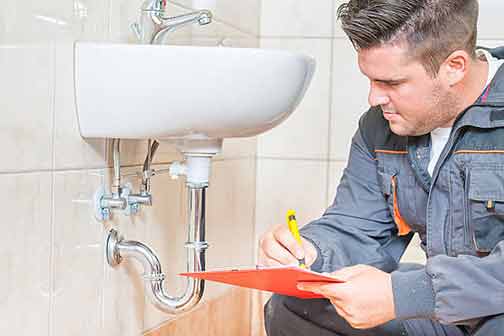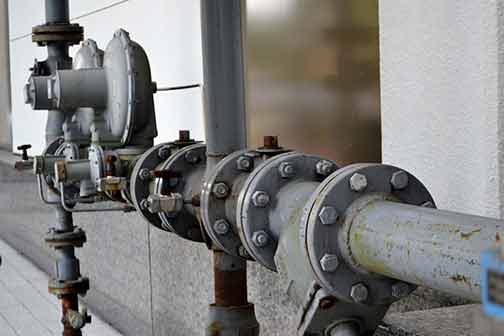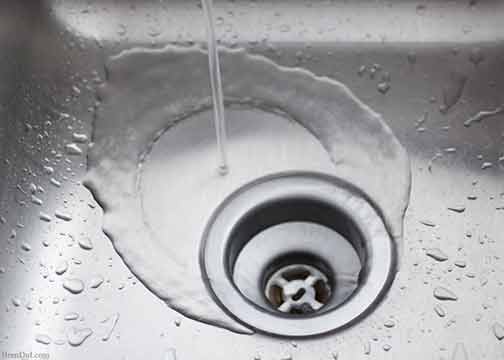
Plumbing issues are a common occurrence in households, and they can cause significant inconvenience and potential damage if left unaddressed. Slow drains and leaking pipes are two prevalent problems that homeowners often encounter. While these issues may seem minor at first, they can indicate larger underlying problems within the plumbing system. That’s why it is essential to consider a whole house plumbing inspection when facing such issues. Below we will explore the importance of timely inspections and the benefits they can offer in maintaining a healthy and functional plumbing system.
Identifying the Signs
Slow drains and leaking pipes are not always immediately noticeable. However, paying attention to the following signs can help you determine whether it’s time to schedule a whole house plumbing inspection:
- Water draining slowly from sinks, showers, or toilets.
- Unpleasant odors coming from drains.
- Persistent gurgling or bubbling noises in pipes.
- Inconsistent water pressure or reduced water flow.
- Wet spots or discoloration on walls or ceilings.
- Pools of water forming near plumbing fixtures.
- Increasing water bills without any apparent reason.

A whole house plumbing inspection involves a thorough examination of your entire plumbing system, including pipes, fixtures, drains, and water supply lines.
The Importance of a Whole House Plumbing Inspection
A whole house plumbing inspection involves a thorough examination of your entire plumbing system, including pipes, fixtures, drains, and water supply lines. While you may be tempted to address individual issues as they arise, a comprehensive inspection can help identify hidden or potential issues that might develop into major concerns if left untouched. Here are some key reasons why a whole house plumbing inspection is crucial:
1. Early Detection of Problems
A plumbing inspection allows professional plumbers to identify issues that may not be easily visible to the untrained eye. By detecting problems early on, you can prevent them from escalating into more significant and costlier repairs down the line.
2. Prevention of Water Damage
Leaking pipes can cause significant water damage to your home’s structure, walls, flooring, and even electrical components. By detecting and repairing leaks promptly, you can prevent potential mold growth, rotting, and structural damage caused by prolonged exposure to water.
3. Improved Efficiency
Slow drains can be a symptom of clogged or damaged pipes. A professional plumber can determine the underlying cause and recommend the most efficient solution, ensuring that your plumbing system operates optimally and prevents any unnecessary water wastage.
4. Enhanced Safety
A plumbing inspection also helps identify potential safety hazards. For example, corroded pipes can lead to water contamination, posing health risks to you and your family. Additionally, leaky pipes may create slippery surfaces, increasing the chances of accidents or falls within your home.
Choosing a Professional Plumbing Inspection Service
When opting for a whole house plumbing inspection, it is crucial to hire an experienced plumbing service. Here are a few factors to consider before making your decision:
- Look for licensed and insured plumbers who have extensive knowledge and experience in conducting whole house plumbing inspections.
- Check for customer reviews and ratings to gauge service quality and customer satisfaction.
- Inquire about the specific details covered in the inspection and whether the service includes a comprehensive report of findings and recommendations.
- Ask about pricing and compare quotes from multiple plumbing companies to ensure you receive a fair and competitive price.

Regularly clean your drains using natural methods or approved drain cleaners to prevent clogs.
Maintaining a Healthy Plumbing System
Beyond a one-time plumbing inspection, it is crucial to adopt good maintenance practices to keep your plumbing system healthy and functional. Here are a few steps you can take:
- Regularly clean your drains using natural methods or approved drain cleaners to prevent clogs.
- Avoid flushing anything other than toilet paper down the toilet, as foreign objects can cause blockages.
- Keep an eye out for signs of leaks, such as dampness or discoloration, and get them repaired promptly.
- Monitor your water pressure regularly and address any inconsistencies or sudden drops immediately.
- Upgrade older plumbing fixtures to improve efficiency and reduce the risk of leaks.
Wrapping It Up
Slow drains and leaking pipes are indicators of potential plumbing issues that should not be ignored. Investing in a whole house plumbing inspection can save you from costly repairs, prevent water damage, improve efficiency, enhance safety, and ensure the overall longevity of your plumbing system. By partnering with good local plumbers and prioritizing regular maintenance, you can enjoy a stress-free and smoothly functioning plumbing system that meets your household’s needs for years to come.